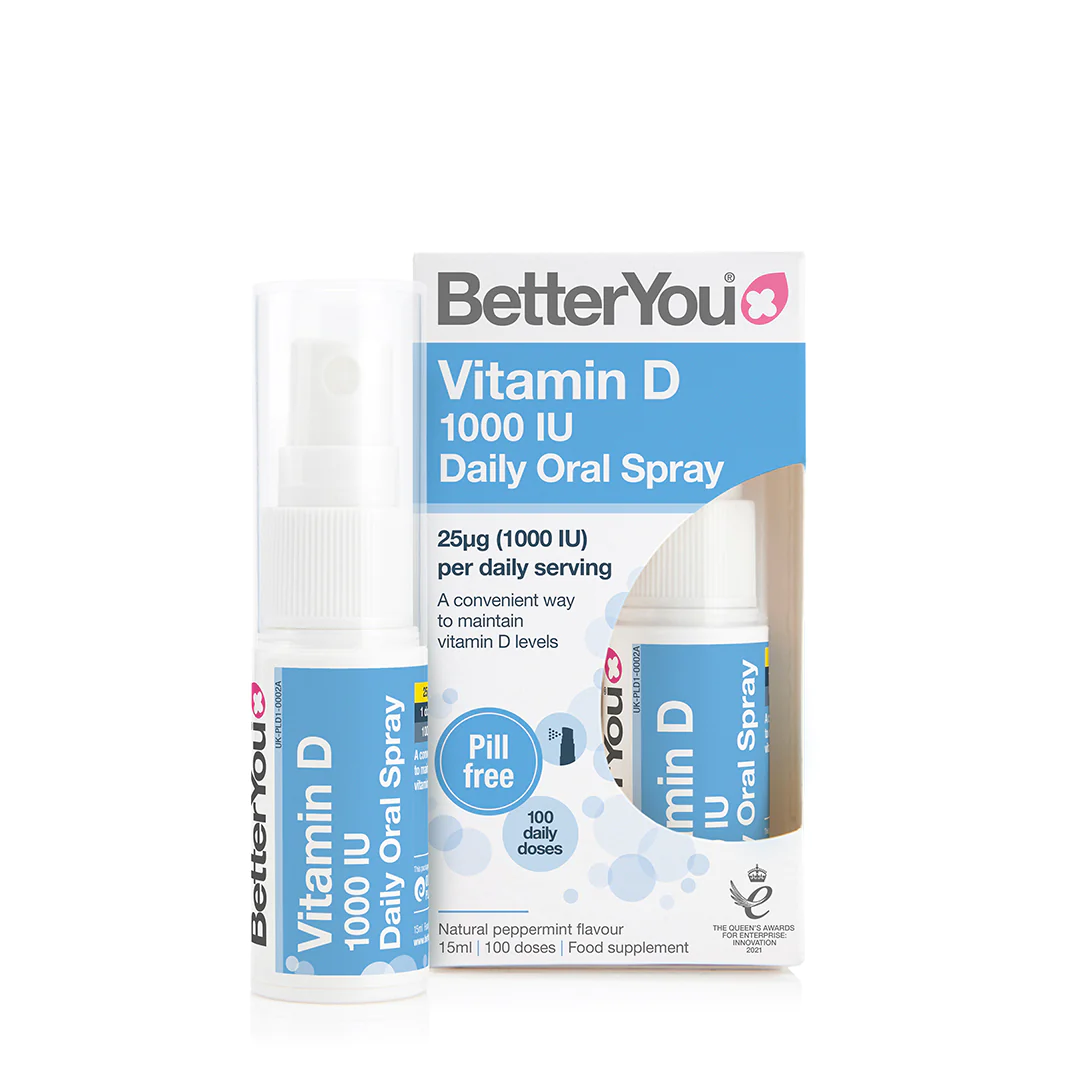
Vitamin D
Vitamin D helps regulate the amount of calcium and phosphate in the body. These nutrients are needed to keep bones, teeth and muscles healthy. Small amounts of vitamin D can be obtained through food (about 5–10 per cent). However, it is difficult to obtain enough vitamin D from diet alone.
Government advice is that everyone should consider taking a daily vitamin D supplement during the autumn and winter as a minimum.
You may be at greater risk of vitamin D deficiency if you:
-
Have naturally very dark skin – this is because the pigment (melanin) in dark skin can partially block UV radiation from being absorbed;
-
Avoid the sun;
-
Spend a long time indoors and have limited sun exposure (such as nightshift workers, or those who are housebound or in residential care);
-
Wear a covering to conceal your body (such as for religious or cultural reasons);
-
Are obese;
-
Have a disability or condition that affects vitamin D metabolism – such as end stage liver disease, kidney (renal) disease or fat malabsorption syndromes (such as cystic fibrosis, coeliac disease and inflammatory bowel disease);
-
Take medication that affects vitamin D absorption;
If you are at risk of vitamin D deficiency you should seek advice from your GP.
Vitamin D 25 mcg (1000 iu)
Help strengthen bones, the immunue system and general health with this effective supplement.
High Strength Vitamin D (4000 iu)
This high strength Vitamin D supplement provides 4000iu of D3 and 100mcg of K2 vitamin. Each bottle contains 120 tablets that will last for 4 months.
Vitamin D Oral Spray (1000 iu)
Delivering 1000IU per spray, D1000 provides an effective maintenance dosage for adults and teenagers..
Vitamin D Oral Spray (3000 iu)
D3000 Vitamin Oral Spray provides the optimal dosage of Vitamin D in a single daily spray.
Key Information
-
Vitamin D is a hormone that controls calcium levels in the blood. It is needed for strong bones, muscles and overall health.
-
Government advice is that everyone should consider taking a daily vitamin D supplement during the autumn and winter.
-
A lack of vitamin D can lead to bone deformities such as rickets in children, and bone pain caused by a condition called osteomalacia in adults.
-
The body can only absorb a limited amount of vitamin D at a time. Spending extra time in the sun won’t increase vitamin D levels – but may increase your risk of skin cancer.
-
Food sources include, fatty fish (such as salmon), eggs, margarine and some milks have added vitamin D as well as some cereals have added vitamin D.
Benefits
Getting enough vitamin D may:
-
Help strengthen your bones;
-
Support the immune system;
-
Improve oral health;
-
Help prevent high blood pressure;
-
Strengthen muscles;
-
Support weight loss;
-
Help reduce the risk of certain cancers;
-
Help with depression;
-
Help prevent Type 1 and Type 2 diabetes.
Signs of Deficiency
The following symptoms may signal you’re not getting enough vitamin D:
-
Frequent illness or infections
-
Fatigue and tiredness
-
Bone and back pain
-
Depression
-
Impaired wound healing
-
Bone loss
-
Hair loss
-
Muscle pain
-
Weight gain
-
Anxiety
Dosage
-
The Department of Health and Social Care recommends that adults and children over 4 take a daily supplement containing 10 micrograms of vitamin D throughout the year if they are not often outdoors – for example, if they're frail or housebound, are in an institution like a care home or usually wear clothes that cover up most of their skin when outdoors
-
Children from the age of 1 year and adults need 10 micrograms of vitamin D a day. This includes pregnant and breastfeeding women, and people at risk of vitamin D deficiency.
Standard Delivery - Royal Mail Tracked
3-4 Business Days
£3.99 UK Delivery
Expess Delivery - Royal Mail Tracked
2-3 Business Days
£4.99 UK Delivery
Free Delivery - Orders Over £25
3-4 Business Days





